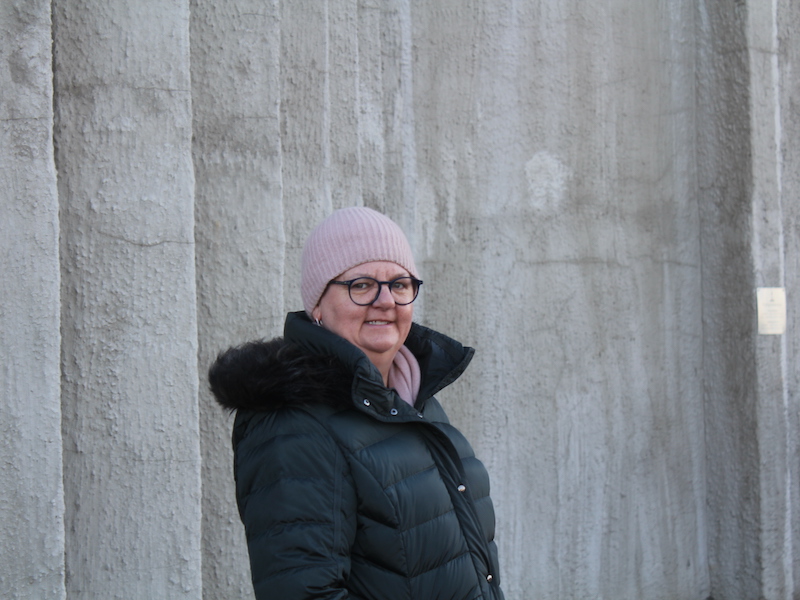Researcher Highlights
Tech smart mental health solutions
Rhonda Wilson
Professor Rhonda Wilson is a Wiradjuri woman, experienced nurse and an internationally recognised mental health nursing scientist. Her work in e-health is paving the way for new digital therapeutic interventions that promote and support patient-centred care and increased wellbeing.

Deputy Head of Nursing and Midwifery School (Central Coast Campus), and Head of the School’s Indigenous Portfolio, Professor Rhonda Wilson is helping to reimagine the way technologies are used to enhance mental health care in Australia and worldwide.
Digital technology, Rhonda explains, can allow more people to engage in personalised treatment – treatment which may otherwise remain out of reach – by simply using the device in their pocket, for example.
From wearable technology, to social media, chatbots and gamification, Rhonda’s work cleverly combines the latest in technology with a steadfast, patient-centred approach that has been fostered over her more than three-decade-long nursing career.
“It is about finding new and innovative ways to provide precise solutions to address real-life problems associated with psychological discomfort and distress, and to make sure these solutions are practical for implementation with end users in the real world,” says Rhonda.
The end result, and the overarching goal of Rhonda’s research, is mental health care that’s more accessible, usable and tailored to individual abilities and needs.
Targeted technologies
Rhonda’s work is contributing to a base of new evidence that supports the use of technologies tailored to each person’s individual health needs and characteristics.
This type of targeted technology allows people easier access to treatment at any given time in a 24-hour period. It also offers settings and formats that are optimised for people’s abilities (language, volume, colour, font size, image, dictation, etc), precise prescriptions, early intervention and emergency responses – ultimately promoting coping and preventing deterioration.
“My work seeks to harness the digital technologies available and apply them to solving mental health problems for a wide range of people with diverse experiences and needs to help them to participate fully in life, with self-determination, meaning and purpose.”
Rhonda is also contributing to better mental health care through her roles as scientific assessor for NHMRC and the European Research Council, as well as multiple global affiliate roles that mean she is always at the forefront of new innovations.
For example, over the last several years, Rhonda has led a digital mental health research unit based in Denmark with outcomes that spearheaded the national adoption of routine telepsychiatric treatment, and notably, has now been further scaled to respond to COVID-19 in Denmark during 2020.
Facing a pandemic
Rhonda’s research has become even more critical since the onset of the COVID-19 pandemic, which brought with it a surge of clients requesting mental health treatment after periods of quarantine and isolation.
This demand, coupled with a need to maintain social distancing, meant that new ways of conducting consultations, such as telehealth and video conferencing, needed to be offered, without compromising on care.
The work of Rhonda and her peers goes a step further by providing evidence on how to deliver more holistic care using a mix of technological solutions like interactive websites, wearables, virtual reality and more.
“It has been identified widely in the literature that the further development of suitable and novel digital health interventions and telehealth style consultations make an invaluable contribution to national health service provision at this time where social and physical distancing restriction has been frequently mandated.”
Digital inequalities
Digital delivery of mental health treatment is not without its challenges.
While Rhonda, along with her research team and both national and international collaborators, can come up with digital solutions to providing quality distance consultations, their implementation is subject to common issues around connectivity and accessibility.
“It is a huge challenge to ensure equity of delivery in mental health service distribution – on a national or global scale – and especially with digital health, which is dependent on a digital platform, and often on internet availability.
“We work on this by advocating for equitable network distributions and inviting end users in hard-to-reach communities to participate as co-designers in our research so that they are included in ways that are meaningful to their lives.”
A diverse impact
Rhonda is also involved in nursing education on a global scale as a respected leader in her field.
She has published nursing textbooks in English and Danish, is one of the author’s of an Aboriginal nursing textbook written entirely by First Nations authors and has recently contributed to a ‘Call to Action’ publication led by Dr Lynore Geia designed to dismantle racism in health and education institutions.
“I am proud to be a registered nurse contributing to the educational preparation of nurses from their pre-registration through to their advanced practice.
“It is a great privilege to supervise PhD students from a range of disciplines and backgrounds and in doing so, develop the research workforce to improve healthcare practice and policy with high calibre research outputs.”
Rhonda has made a significant contribution to both the nursing and mental health fields during her three-decade career in Australia, New Zealand and Demark. With so many accolades and titles under her belt, the future of mental health care and research is in very good hands.
The University of Newcastle acknowledges the traditional custodians of the lands within our footprint areas: Awabakal, Darkinjung, Biripai, Worimi, Wonnarua, and Eora Nations. We also pay respect to the wisdom of our Elders past and present.